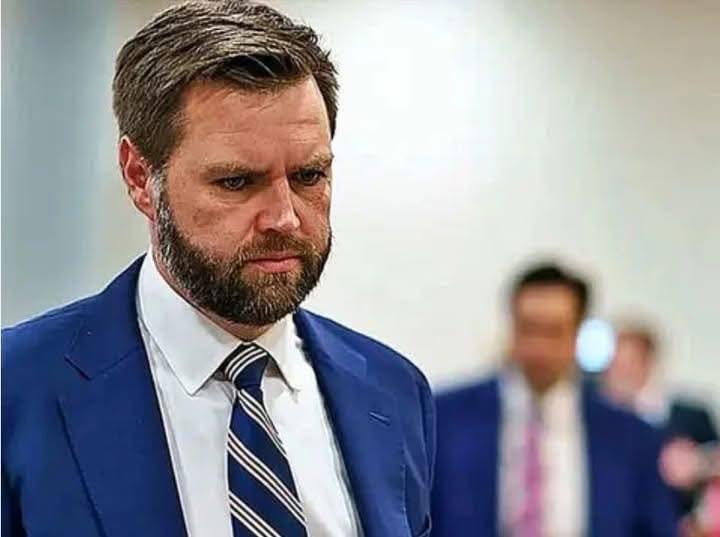What began as a pointed political remark by U.S. Vice President JD Vance has quickly spiraled into a diplomatic controversy, igniting backlash from military leaders, political figures, and veterans in the United Kingdom. The uproar stems from comments Vance made about the military relevance of certain U.S. allies, remarks that many in Britain saw as dismissive of the sacrifices made by British forces during the wars in Iraq and Afghanistan.

The reaction from across the Atlantic was swift and unyielding. Within hours of Vance’s comments circulating in the media, British veterans and military figures publicly condemned what they viewed as a shocking lack of respect. The criticism was particularly sharp given the historical bond between the United States and the United Kingdom, forged through generations of cooperation in conflicts stretching back to World War I.
A Painful Reminder of Sacrifice
For many British veterans, Vance’s words struck a personal nerve. The UK lost 636 soldiers in Iraq and Afghanistan—conflicts fought side by side with U.S. troops under the banner of shared security and international stability. To suggest that Britain lacked recent battlefield experience, critics argued, ignored both the human cost and the continuing contributions of British forces to global security.
Prominent veterans such as Johnny Mercer, a former UK Minister for Veterans’ Affairs and himself a combat veteran, blasted Vance’s remarks as “insulting” and “historically illiterate.” Famed ex-SAS soldier and author Andy McNab added that such comments only served to undermine the sacrifices of those who fought and died alongside their American allies.
Military Leaders Weigh In
The backlash was not limited to individual veterans. Some of the most respected voices in the British military establishment joined the chorus of disapproval. Admiral Lord West, a former First Sea Lord, condemned the remarks as dismissive of Britain’s long-standing role as America’s closest military partner. General Sir Patrick Sanders, the outgoing Chief of the General Staff, stressed that the deep operational ties between the two militaries are built not just on policy but on blood spilled together in battle.
For these leaders, Vance’s words risked not only offending veterans but also undermining the very essence of the “special relationship” that has been central to NATO and Western security for decades.
Political Leaders Push Back
The political establishment in Britain also reacted strongly. Shadow Defence Secretary James Cartlidge called Vance’s comments “deeply disrespectful,” reminding him that Britain has consistently been one of America’s most reliable partners in conflict. Cartlidge emphasized that British troops have fought and died in every major U.S.-led campaign of the past half century.
Former Foreign Secretary James Cleverly and several Members of Parliament echoed this sentiment. Some warned that while disagreements between allies are natural, remarks that diminish sacrifice are corrosive to trust and mutual respect.
Prime Minister Keir Starmer struck a measured but firm tone, underscoring the nation’s enduring pride in its military contributions. “We honor the sacrifices of our armed forces, past and present, and we expect our allies to do the same,” Starmer said. He emphasized that the partnership between the U.S. and UK rests on more than strategic necessity—it rests on respect.
Vance Attempts Damage Control
Facing mounting criticism, Vice President Vance moved quickly to clarify his intent. He insisted that his comments were not directed specifically at the UK or France but rather at countries that, in his view, lacked recent battlefield experience or meaningful military investment.
“I have the utmost respect for Britain’s military and its sacrifices,” Vance said in a follow-up statement. “My remarks were meant to highlight the importance of combat-ready partners in today’s world, not to diminish the history or courage of those who stood with us in Iraq, Afghanistan, and beyond.”
Despite this clarification, the controversy has not fully subsided. Many in Britain argue that even if unintended, Vance’s words revealed a troubling lack of diplomatic sensitivity, particularly given his role as a senior figure in the U.S. government.
A Broader Conversation on Diplomacy
The episode has sparked a larger debate about the language political leaders use when discussing allies and their military contributions. Analysts point out that while America remains the dominant military power within NATO, its alliances are strongest when they are grounded in mutual respect and acknowledgment of sacrifice.
For the United Kingdom, the criticism of Vance’s comments goes beyond wounded pride. It reflects a determination to ensure that the sacrifices of British soldiers are not forgotten or minimized, especially by the very allies they fought to support.
The Importance of Words in Politics
History has shown that rhetoric matters, particularly when it comes from leaders in positions of global influence. A poorly chosen phrase can reverberate far beyond its original intent, shaping perceptions of alliances and eroding trust.
As one British MP put it, “It’s not just about the words themselves—it’s about the values they reflect. When you dismiss an ally’s sacrifices, you dismiss part of the shared history that makes our partnership meaningful.”
Conclusion
JD Vance’s comments may have been an attempt to make a broader point about military readiness, but they have instead highlighted how fragile international goodwill can be when respect is perceived to be lacking. The UK’s sharp response underscores the sensitivity surrounding allied sacrifices and the importance of honoring them.
While Vance’s clarification may ease tensions, the episode serves as a reminder that diplomacy requires more than strategy—it requires careful words, empathy, and recognition of the blood shed in the name of partnership.




